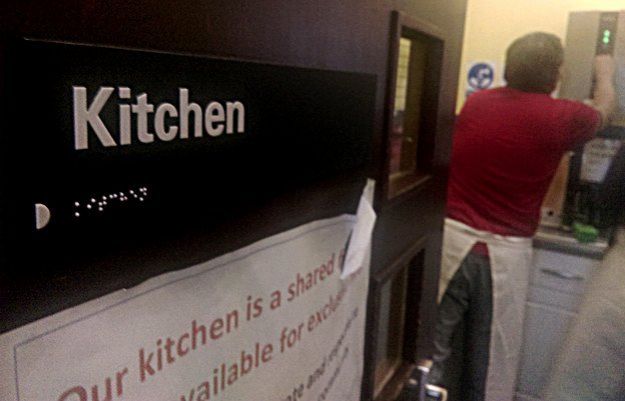Owen Jones in The Guardian
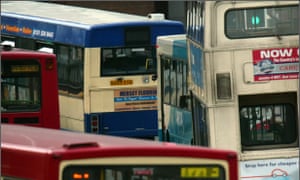
Liverpool’s Queen’s Square bus station. Since 1986, ‘bus trips in big cities outside London have collapsed from 2bn to 1bn a year’. Photograph: Christopher Thomond for the Guardian
Of the issues differentiating the metropolitan mindset in the capital from opinions voiced elsewhere, the starkest is probably transport. We hear much about the overcrowded rail network in London and the south east, where fares are among the most expensive in Europe. Of course we do: much of the national media works from London. And we have warm words for the buses in the capital, where since Ken Livingstone’s first mayoral administration, starting in 2000, the mayoralty and Transport for London have assumed regulatory powers, determining prices and frequency with dramatic success.
Travel outside London, however, and Britain’s deregulated bus system reveals itself as the source of widespread, justified disgruntlement – an overpriced, inefficient, poor-quality mess. According to a report to be published this week, since deregulation in 1986 – unleashed with the promise that “more people would travel” – bus trips in big cities outside London have collapsed from 2bn to 1bn a year. In London, on the other hand, where everything from how much we pay to which routes exist is decided by the mayor and Transport for London, bus use since the 1980s has gone in the opposite direction: from around 1bn to more than 2bn trips a year. Britain’s bus privatisation disaster is a story of profit before need, and a discomfiting tale for those who believe the private sector automatically trumps the public realm.
I asked Twitter for bad experiences of buses, and turned my feed into one long howl of anguish. Chronic delays, “virtually no evening travel”, old “clapped-out buses”, infrequency, poor punctuality, extortionate prices: these were common complaints. “No evening and barely a weekend bus service in Helmsley, North Yorks,” complained one. “Need a car to live here.” Another cry of frustration: “Costly, cash only, fragmented among several providers, no unified ticketing, virtually ends at 1800 hours, v[ery] poor on Sunday.”
It is the less well-off who suffer most. Fewer than one in three of the poorest tenth of the population own their own car. With our bus system in such a state, it is unsurprising that those with the least money are three times more likely to use a cab than the richest.
Our journey towards the great British bus disaster is uncovered in meticulous detail in the report, by Ian Taylor and Lynn Sloman. “Bus users in Britain inhabit different worlds,” they note, ranging from London’s centrally regulated bus system to rural dwellers who “live in a third world with a skeletal service or, in some places, no service at all”. Whatever Margaret Thatcher’s programme of deregulation in the 1980s offered, the opposite happened: fares rose, services worsened and bus use fell.
Private bus companies have one motive, after all: making profit, rather than catering to the needs of their users. Between 2003 and 2013, £2.8bn ended up as dividend payments in the bank balances of shareholders, rather than invested in improving bus services. About 40p in every pound of their total revenues comes directly from the taxpayer: yet another example of Britain’s publicly subsidised “free market” economy.
Bus services are a hopelessly confused patchwork of provision. Some tickets you can use with different providers, some you can’t. You may find enough buses at peak hours but struggle to catch one at other times. If you live in a rural area, you may struggle to find any buses to catch at all. Local authorities can pay for services deemed crucial for local communities, but they do so at great expense. Often the buses themselves are from another age: cold, noisy, rickety vehicles driven by woefully underpaid drivers. Those who can afford to insulate themselves by using their own vehicles can minimise the inconvenience, but that’s not an option for the less fortunate.
Our rail system, we debate. We know that a decisive majority of Britons want to see our railways publicly owned. But where is the debate about rescuing Britain’s bus services?
Bringing buses into accountable, municipal ownership would transform the system. Consider France, or Germany where apparently 88% of local public transport trips are on publicly owned trams, trains or buses, but also look closer to home. In 2013, after running a £8m surplus, municipally owned Lothian Buses in Edinburgh reported satisfaction rates of 96%, beating all competition in Britain. Nottingham City Transport – majority shareholder the city council – has satisfaction rates of 92% in “one of the least car-dependent cities” in Britain.
Here’s what municipalisation can achieve, say Taylor and Sloman. A “comprehensive network” for all communities, without allowing private companies to cherrypick the most profitable routes or obliging local authorities to intervene at “disproportionate cost”. Rather than having a bewildering array of fares, there could be “simple, area-wide fares” that – as in London – could be used across all transport services, from trains to buses, with daily costs capped. Instead of passengers being stuck for the best part of an hour at a freezing bus stop after changing buses, timetables could be coordinated, and public money be spent improving services, not frittered away as shareholder dividends.
We hear so little about buses, undoubtedly, because in London they are good enough for the middle classes to use, while outside the capital those with sharper elbows often avoid them. But here is surely an issue for Labour to champion. Those who suffer the most are often in areas where Labour could do well to try to win support, such as Cornwall, and in many Tory-dominated rural communities. Municipal ownership, with bus passengers encouraged to help run services, would improve the lives of many poorer citizens. There would also be fewer cars on the road. Whether or not Lady Lindsay of Dowhill ever really said “Anybody seen in a bus over the age of 30 has been a failure in life”, the stigma could be overcome for the public good.
Putting the great bus privatisation disaster on the agenda would be another reminder that the inherent superiority of the market is not a foregone conclusion. This is a rich country. If we cannot even produce a decently functioning bus service for our citizens, we need to start asking ourselves some serious questions.
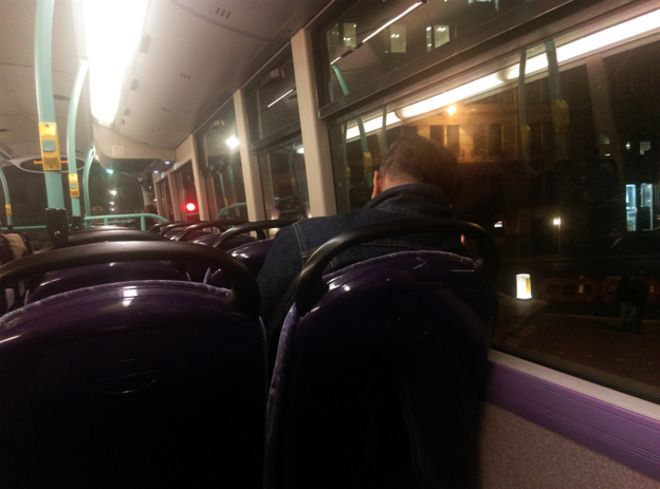
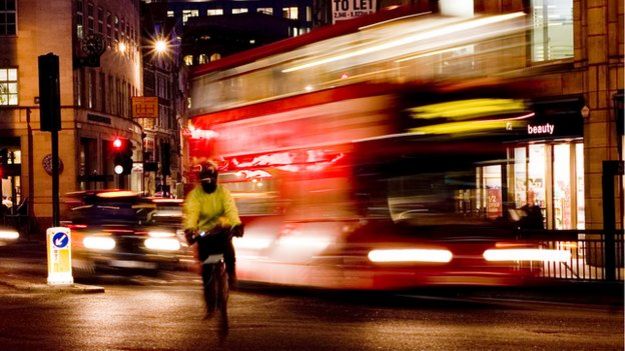
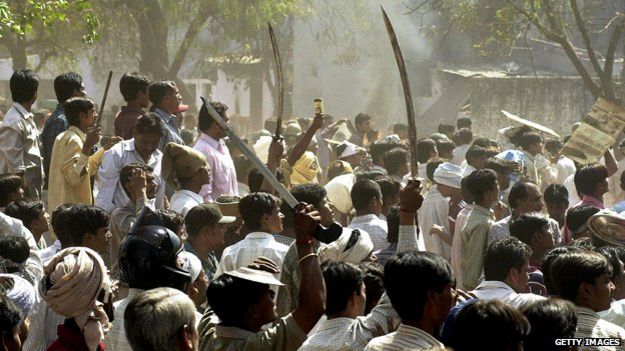 A Hindu mob confronts a Muslim one in Gujarat, 2002
A Hindu mob confronts a Muslim one in Gujarat, 2002